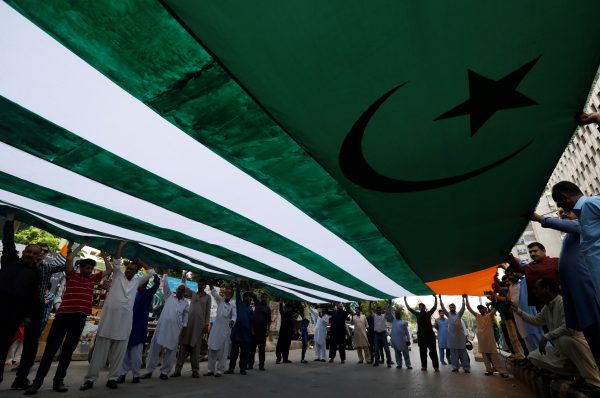On 6 August 2019, India’s Parliament nullified the special status of Jammu and Kashmir (JK) under the Indian Constitution that has been in place for nearly 70 years. This marks the end of JK’s administrative and constitutional autonomy. With this move, India seeks to enforce one uniform system of governance across the entire country, including JK — ending what is essentially a ‘one country, two systems’ arrangement.
Parallels can be drawn with China’s ‘one country, two systems’ arrangement with Hong Kong. Upon Britain’s handover of Hong Kong to China in 1997, the ‘one country, two systems’ principle was formulated to ensure that Hong Kong would retain administrative and legislative autonomy for 50 years. In contrast, JK, originally a princely state under the British imperial paramountcy, acceded to India soon after its independence from Britain in 1947.
Pakistan continues to contest the 1947 accession of Muslim-majority JK to the Hindu-majority but secular India. Due to political–military developments following the partition of British India, Islamabad controls two segments of the original princely state — Azad Jammu and Kashmir (AJK) and Gilgit–Baltistan.
Sheikh Abdullah, the popular leader in JK during the accession, was involved in India’s constitution writing process and won special status for his state as a constituent part of independent India. JK was allowed a separate constitution and flag and granted autonomy on all matters except communications, defence and foreign affairs.
But in August 2019, following his re-election, Indian Prime Minister Narendra Modi reviewed that dispensation and moved to reinvent JK’s future. Delhi annulled the full autonomy of the increasingly restive JK by invoking an enabling clause in the temporary Article 370 of the Constitution, allowing all Indians from hereon to enjoy the right of residence and freedom of movement in JK. On 31 October 2019, JK will be bifurcated and divested of its position as a special Indian state. The two newly bifurcated units, both union territories, will be the Muslim and Hindu areas of JK that border Pakistan-controlled AJK, and the Buddhist-Hindu Ladakh, with a sizable Muslim population, near China. These union territories will be administered by the Indian government.
Modi has gift-wrapped these moves as a plenary empowerment of the people of JK and Ladakh, carrying this message to the Indian diaspora in the United States, and in the presence of US President Donald Trump, on 22 September 2019. But the anti-India sentiments of separatist forces in JK, with or without proactive support from Pakistan, may continue to pose a challenge to Modi, whose response will be watched globally.
Already, China supported its ‘all-weather’ partner Pakistan in a closed-door discussion of the United Nations Security Council on India’s latest reconfiguration of JK. Also attracting international attention is Indian External Affairs Minister S Jaishankar’s statement on 18 September 2019 that Indians ‘expect’ to ‘have the physical jurisdiction’ over ‘Pakistan-occupied Kashmir’ at some stage in the future.
Right now, by moving to fully integrate JK with the rest of India, Modi may have actually incentivised Islamabad to consider a tit-for-tat constitutional action of converting Gilgit–Baltistan and AJK into fully-fledged Pakistani provinces. But Pakistan has not so far signalled the possibility of such a constitutional counter.
Delhi believes Gilgit–Baltistan and AJK were part of the original princely state of JK when it acceded to India in 1947. These areas are still disputed by India, which has also opposed the China–Pakistan Economic Corridor that passes through them. China has reportedly counselled Pakistan to explore ways of overcoming Indian objections. A tit-for-tat constitutional counter is a Pakistani option in this regard.
On a related diplomatic front, China continues to exercise sovereignty over Aksai Chin, a border area in dispute between China and India, in the context of the territorial limits of Ladakh. Yet, on 12 August 2019, India appeared to reaffirm its adherence to the Sino–Indian Line of Actual Control in Ladakh and elsewhere. This may have been intended to reassure China that the territorial jurisdiction of India’s new Union Territory of Ladakh would not extend to Aksai Chin. However, Jaishankar clarified on 18 September 2019 that India has not renounced its sovereignty claims over Aksai Chin. He said India’s latest decision on Ladakh ‘has not changed the external boundaries of India’.
In this dynamic context, China and India are exploring a new modus vivendi to meet the current uncertain global situation. China remains relevant to the future of JK because of Beijing’s old but ‘temporary’ border agreement with Pakistan concerning Gilgit–Baltistan and AJK. The future of JK and Pakistan’s as well as China’s responses will have important implications for the India–China–Pakistan relationship.
P S Suryanarayana is a visiting Senior Fellow with the South Asia Programme at the S Rajaratnam School of International Studies (RSIS), Nanyang Technological University, Singapore. He is author of ‘Smart Diplomacy: Exploring China-India Synergy’ (2016). All views expressed here are personal.
A previous version of this article appeared here on RSIS.

